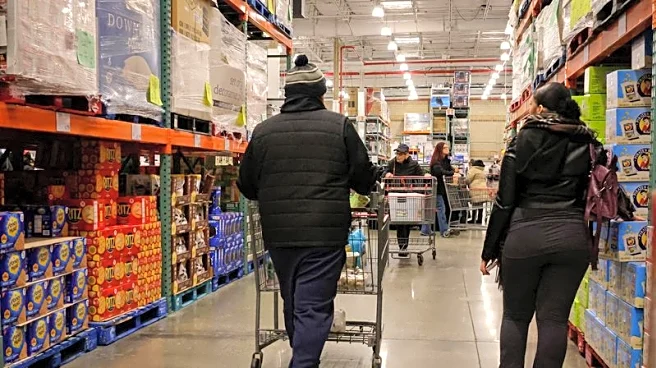Rapid Read • 8 min read
Brazilian farmers are preparing to plant their 2025/26 soybean crop, with planting dates varying by region. In Mato Grosso, planting can begin on September 7th, while in Parana, it ranges from September 1st to September 20th. The expansion of soybean acreage is expected to be modest, with an estimated increase of 2% and a production forecast of 173.0 million tons. This growth is constrained by low prices, higher production costs, and limited credit availability. Various estimates suggest acreage increases between 1.2% and 2.9%, with production forecasts ranging from 166.56 million tons to 178.2 million tons.
AD
The expansion of Brazil's soybean acreage is significant for global agriculture markets, as Brazil is a major soybean producer. The modest increase in acreage reflects economic challenges such as low commodity prices and high production costs, which could affect global supply and pricing. The production forecast impacts international trade, particularly for countries reliant on Brazilian soybeans. Stakeholders in the agriculture industry, including exporters and importers, will need to adjust strategies based on these projections. The USDA's estimate of a 2.9% increase in acreage highlights potential shifts in global agricultural dynamics.
Brazilian farmers will monitor weather conditions closely to ensure adequate soil moisture for planting. The first official soybean acreage report from Conab is expected in October, providing more precise data for stakeholders. As planting progresses, market analysts will watch for changes in production estimates, which could influence global soybean prices. Agricultural economists and policymakers may respond to these developments by adjusting trade policies or exploring alternative markets. The outcome of Brazil's soybean season will be crucial for international agricultural trade and economic planning.
The expansion of soybean acreage in Brazil may have environmental implications, as increased agricultural activity can lead to deforestation and biodiversity loss. Sustainable farming practices and regulatory measures will be essential to mitigate these impacts. Additionally, the reliance on soybeans as a cash crop underscores the need for diversification in Brazil's agricultural sector to enhance resilience against market fluctuations. Long-term shifts in global demand for soybeans could drive innovation in crop management and sustainable agriculture practices.
AD
More Stories You Might Enjoy














